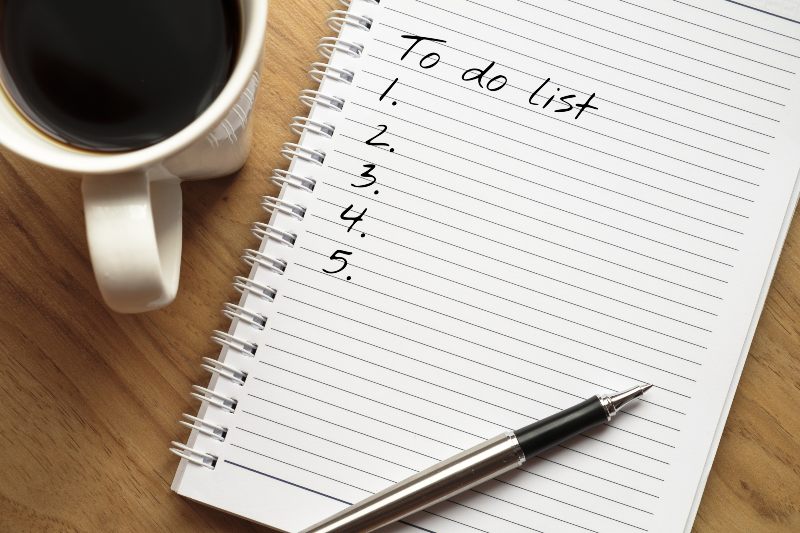Every workplace should have a supportive environment to ensure employee satisfaction. However, the workload at modern workplaces can cause stress for employees. Experiencing regular workplace stress can be detrimental to your well-being. So, how to manage stress at work? Let’s dive in.
How to manage stress at work?
In the hustle-bustle of today’s world, excess work stress can have severe health consequences, like feeling tired and burnout, and severe health conditions like heart disease and irregular metabolic syndrome. Stress is a psychological response to a change in a situation that our body and mind find overwhelming. In this fast-paced world, constantly being occupied with work and engaging with technology can be overwhelming and stressful. That’s where the question may arise, “How do you manage stress at work?”
You can incorporate specific coping strategies, such as sticking to a positive morning routine, adopting time-management techniques, and being clear on requirements on priority.
Expert advice

Work stress refers to the external pressure that employees face at work. Meeting deadlines, delivering quality work on short notice, completing targets, and workload piling up – these are some of the issues that culminate into physical symptoms like headache, high blood pressure, chest pain, upset stomach, and can affect mood disorders leading to irritability, anxiety or depression. Therefore, it’s vital to manage work by incorporating certain habits to keep stress at bay.
Ways to avoid burnout

Here are some of the ways that you can use to manage stress at work and avoid burnout:
- Prioritize your work:
Staying organized and making a to-do list always helps in stress management in the workplace. The feeling of ticking/crossing a task off our list triggers a sense of accomplishment. Start with the most significant goal, work on other minor tasks, and you will truly benefit. You can also incorporate the Pomodoro technique, which involves focusing on 25 minutes of focused work followed by 5 minutes of break intervals.
- Workplace wellness:
Consider organizing yoga sessions at the workplace once a month, encouraging healthy eating and regular checkups, or arranging standing desks to stay active throughout the day instead of just sitting in one place. Such exercises will increase the production of endorphins, which will reduce stress.
- Maintain positive relations:
Since you work many hours in the same environment, buddy up with your colleagues. An employee’s day out or a games marathon once a month can lead to team building and bonding. This can also help reduce work-related stress.
- Be responsible and adaptive:
Being responsible is a great attribute. But taking up all the work alone can cause work stress. Learn to ask for help so that the amount of work you do take up can be delivered effectively. Don’t beat yourself up or sweat over things beyond your control.
- Show appreciation:
Colleagues should appreciate each other, creating a friendly work environment. An email complimenting them for their work or an appreciation badge goes a long way in boosting everyone’s morale. It helps individuals feel good about their work, which furthers productivity and decreases stress.
- Maintain work-life balance:
Maintain a balance. If you are working, don’t let the chores left at home affect your work. When you reach home, if you can, avoid checking emails. This is the time when you can decompress from an entire day’s work, relax, and spend time with family.
- Provide counseling:
Talking to a therapist or visiting a counselor also helps in stress management. They can personalize strategies to suit your needs. A therapist can help you understand your overall mental health.
While work stress can get overwhelming, it can easily be managed using these seven strategies to manage stress and burnout. However, if you still feel stressed and anxious, consider taking a pause and seek guidance.
Key Takeaways
- You can manage stress at work by adopting specific coping strategies, such as establishing a positive morning routine and using effective time-management techniques.
- Some workplace issues can lead to physical symptoms, such as headaches, high blood pressure, and chest pain, so it’s essential to address them promptly.
- To avoid burnout, prioritize your tasks, maintain positive relationships with colleagues, and express appreciation for their efforts.
Stay tuned to the Activ Living Community. Keep up to date with the latest health tips and trends through expert videos, podcasts, articles, and much more in nutrition, fitness, mindfulness, and lifestyle conditions like Asthma, Blood Pressure, Cholesterol, and Diabetes.
You may also be interested in the following blogs:
Popular Searches
How to lower blood pressure | Fruits good for liver | Unhealthy foods | Ragi Benefits | Basal Metabolic Rate | Acupressure points for High Blood Pressure | Ayurvedic medicine for blood pressure | How to control cholesterol at home | Homeopathy for Asthma | Biological Age | Home remedies for TB | Natural beta blockers | Negative effects of internet | Types of walking | Blood pressure calculator | Blood sugar calculator | BMI Calculator





 1800-270-7000
1800-270-7000








